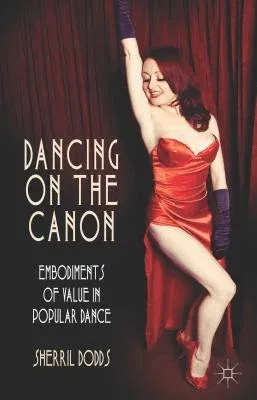S Dodds
(Author)Dancing on the Canon: Embodiments of Value in Popular Dance (2011)Paperback - 2011, 24 June 2011

Qty
1
Turbo
Ships in 2 - 3 days
In Stock
Free Delivery
Cash on Delivery
15 Days
Free Returns
Secure Checkout
Print Length
235 pages
Language
English
Publisher
Palgrave MacMillan
Date Published
24 Jun 2011
ISBN-10
1137437375
ISBN-13
9781137437372
Description
Product Details
Author:
Book Edition:
2011
Book Format:
Paperback
Country of Origin:
US
Date Published:
24 June 2011
Dimensions:
21.59 x
13.97 x
1.35 cm
ISBN-10:
1137437375
ISBN-13:
9781137437372
Language:
English
Location:
London
Pages:
235
Publisher:
Weight:
294.83 gm

